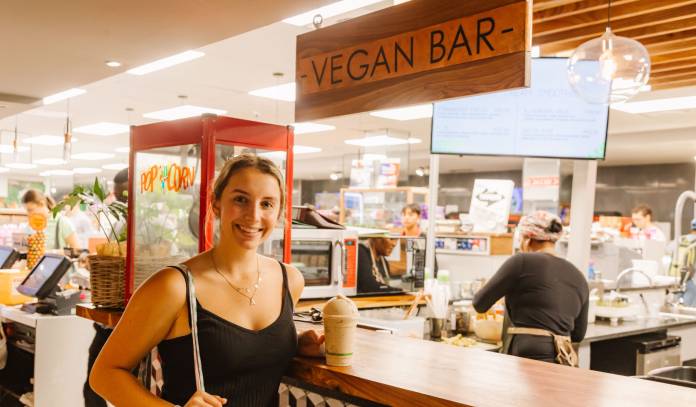
Food production accounts for a significant portion of global greenhouse gas emissions, contributing to a quarter of the world’s total. This impact is due to various factors including farming practices, food processing, fisheries, and crop production. Consequently, the choices we make in food consumption directly influence climate change through the carbon emissions associated with ingredient production.
In response to this urgent environmental challenge, Stellenbosch University (SU) is pioneering a sustainable approach to dining by collaborating with the Swedish-based startup Klimato. As the first African higher education institution to adopt Klimato’s carbon footprint software, SU is taking proactive steps to promote eco-conscious practices among its staff and students.
The partnership between SU’s Compliance and Catering Office and Klimato signifies a commitment to reducing carbon emissions and fostering sustainable practices within the university’s operations. By leveraging Klimato’s software, SU aims to educate its community about the environmental impact of meal choices and empower individuals to make more sustainable decisions.
Earlier this year, SU’s Compliance and Catering Office reported a staggering 806,693 meals booked online from January to December 2023. This high volume underscores the pressing need for a more sustainable approach to food preparation and selection, with a focus on minimizing environmental impact.
Once implemented across campus, the partnership with Klimato aims to achieve several key objectives:
- Demonstrate Environmental Impact: The initiative seeks to illustrate to students the environmental impact of various menu options, providing insights into the carbon footprint of different meals. By raising awareness, SU aims to empower students to make informed and sustainable choices about their food consumption.
- Recipe Improvement: SU is committed to refining meal recipes to produce lower carbon emissions. Collaborating closely with catering service providers, the university will explore ways to reduce the environmental footprint of its meals without compromising on taste or quality.
- Data Localization: The partnership with Klimato involves localizing data to enrich the Klimato South African database. By contributing region-specific information, SU aims to facilitate more accurate carbon footprint calculations for meal ingredients and preparation methods.
- Widespread Adoption: SU aims to encourage the widespread adoption of climate-conscious meal preparation practices within its campus community and beyond. By sharing insights and best practices, the university seeks to inspire positive change in dining practices across institutions and organizations.
- Emissions Reduction: Ultimately, the goal of the partnership is to enable a reduction in the carbon emissions produced by catering service providers appointed by the Compliance and Catering Office. Through the implementation of sustainable practices and the utilization of technology, SU aims to minimize its environmental impact and lead by example in the fight against climate change.
Bennie Malan, Head of SUNCOM’s Compliance and Catering Office, emphasizes the university’s commitment to sustainability: “To showcase our commitment to sustainability, we prioritize initiatives to preserve the environment, promote social responsibility, and ensure economic viability for future generations.”
As SU continues to innovate and lead by example, its Sustainable Development Impact Hub plays a crucial role in driving progress towards sustainability goals. The release of the second Sustainable Development Annual Report, titled “A Sustainable Africa: Partnerships for Progress,” highlights the university’s ongoing commitment to sustainable development and its contributions to the UN and AU agendas.
Through strategic partnerships, innovative technologies, and a steadfast commitment to sustainability, Stellenbosch University is shaping a brighter, more sustainable future for its community and beyond.

